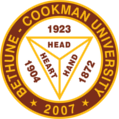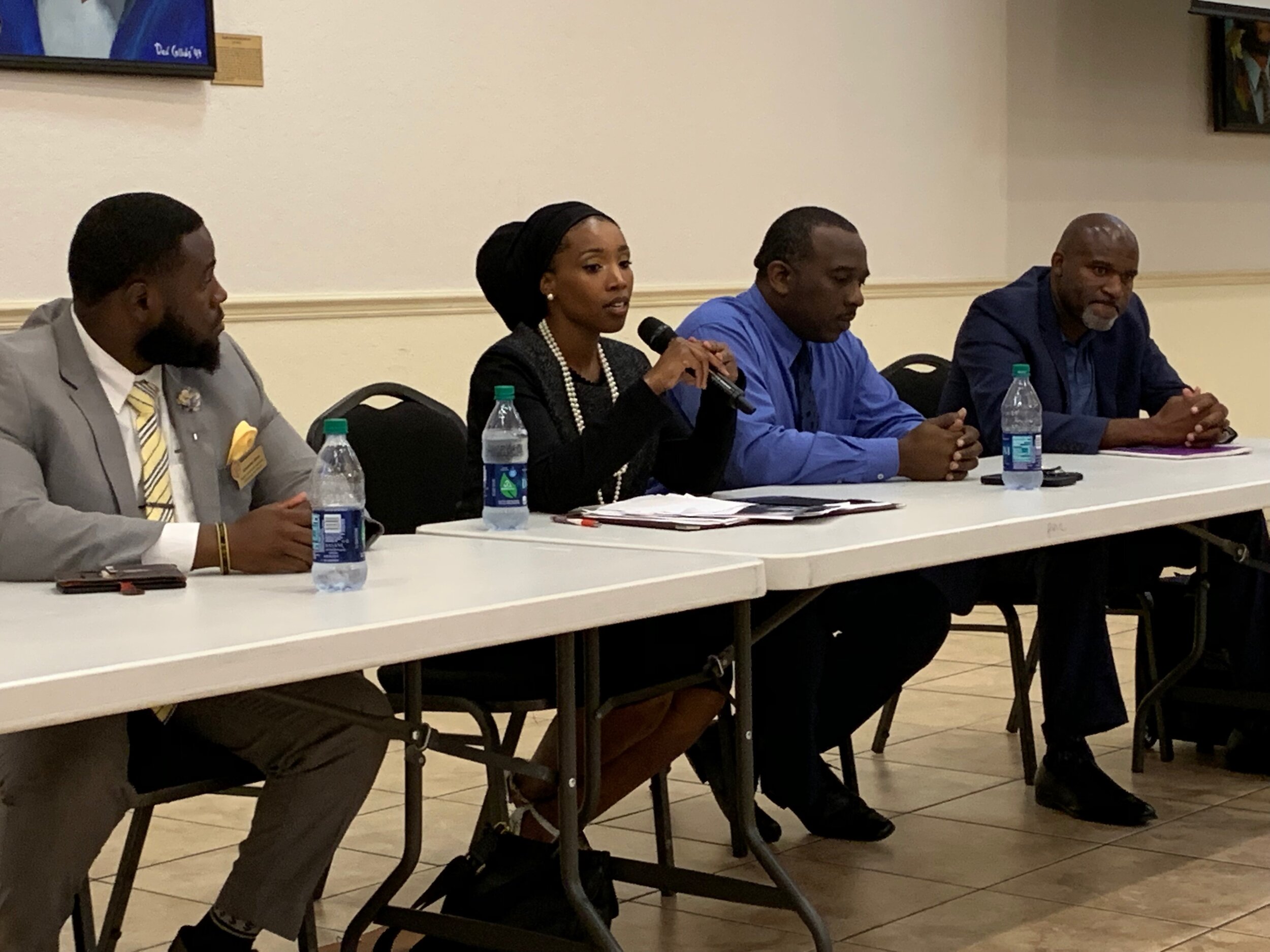B-CU Chapter of National Association of Blacks in Criminal Justice Hosts Panel Discussion, "When They See Us"
The Bethune-Cookman University student chapter of National Association of Blacks in Criminal Justice (NABJC) hosted a panel discussion entitled "When They See Us" based on the story of the five young boys who were erroneously charged and served time for the rape and assault of Trisha Meili, a Central Park jogger in 1989. The story of Kevin Richardson, Raymond Santana, Yusef Salaam, Korey Wise, and Antron McCray was recently turned into a documentary directed by Ava DuVernay and aired on Netflix. Their journey forces us to grapple with the ways in which race, class, politics, and the media impact the administration of justice in America. The featured panelists included Dr. Randy Nelson, the Director of the Master's of Science in Criminal Justice Administration program; Dr. Kideste Yusef, the Department Chair of Justice and Political Studies and the Faculty Advisor for B-CU NABCJ; Captain Bryon Williams of the Daytona Beach Police Department; and Kenuantae Storey, Vice President of Student Government Association who served as the student representative.
Several outcomes of the event were student exposure to diverse perspectives on important social issues of our time; student engagement in open, honest dialogue about the impact race and class within the criminal justice system, and students exposed to the diverse mental health needs of prisoners while in the system and after release.
“The event was an event that needed to be done. It was about discussing the injustices in the Criminal Justice system. As a Historically Black College and University it is important for us to be exposed to these type of injustices as a way to push ourselves harder to graduate and change the image of African-Americans, “ said Bailey Williams, Sophomore, Criminal Justice major, Public Relations Chair of B-CU NABCJ.
Kiefer Jefferson-Grimes, Senior, Criminal Justice major, President of B-CU NABCJ shared, "I was impressed by the engaging debates between students and the panel, which made me hopeful for our generation."

